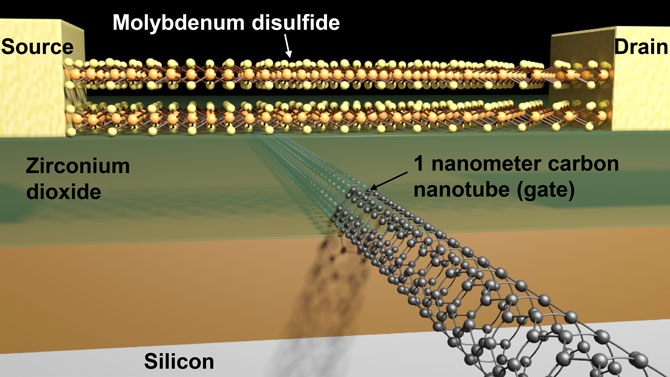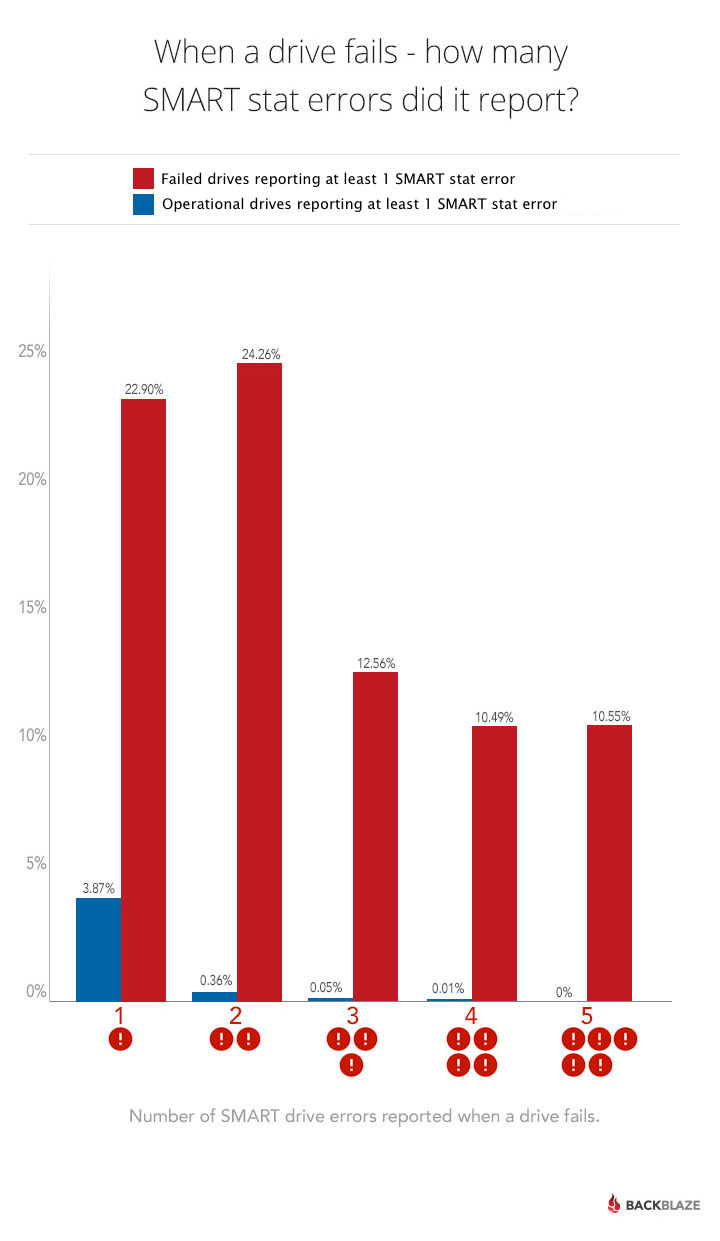
Smallest. Transistor. Ever. For more than a decade, engineers have been eyeing the finish line in the race to shrink the size of components in integrated circuits. They knew that the laws of physics had set a 5-nanometer threshold on the size of transistor gates among conventional semiconductors, about one-quarter the size of high-end 20-nanometer-gate transistors now on the market. A research team led by faculty scientist Ali Javey at the Department of Energy's Lawrence Berkeley National Laboratory (Berkeley Lab) has done just that by creating a transistor with a working 1-nanometer gate. Berkeley Lab
Boeing CEO vows to beat Musk to Mars Boeing Co. once helped the U.S. beat the Soviet Union in the race to the moon. Now the company intends to go toe-to-toe with newcomers such as billionaire Elon Musk in the next era of space exploration and commerce. Boeing Chief Executive Officer Dennis Muilenburg sketched out a Jetsons-like future at a conference Tuesday, envisioning a commercial space-travel market with dozens of destinations orbiting the Earth and hypersonic aircraft shuttling travelers between continents in two hours or less. Bloomberg
Sam Altman's manifest destiny One balmy May evening, thirty of Silicon Valley’s top entrepreneurs gathered in a private room at the Berlinetta Lounge, in San Francisco. Paul Graham considered the founders of Instacart, DoorDash, Docker, and Stripe, in their hoodies and black jeans, and said, "This is Silicon Valley, right here." All the founders were graduates of Y Combinator, the startup "accelerator" that Graham co-founded: a three-month boot camp, run twice a year, in how to become a "unicorn" -- Valleyspeak for a billion-dollar company. The New Yorker
Comcast's 1TB data caps start to roll out nationwide Comcast's data restrictions are going from testing to reality for most of its customers. Its 'Xfinity Terabyte Internet Data Usage Plan' is already in place in a number of places, and will roll out to 18 new markets (including California, Michigan, Florida and others listed on its FAQ) beginning November 1st. For its part, the ISP claims 99 percent of customers use less than 1TB of data per month, and that median use is just 75GB. Engadget
Samsung knew a third replacement Note 7 caught fire on Tuesday and said nothing Another replacement Samsung Galaxy Note 7 has caught fire, bringing the total to three this week alone. This one was owned by Michael Klering of Nicholasville, Kentucky. He told WKYT that he woke up at 4AM to find his bedroom filled with smoke and his phone on fire. Later in the day, he went to the hospital with acute bronchitis caused by smoke inhalation. The Verge
Linus Torvalds admits 'buggy crap' made it into Linux 4.8 Linus Torvalds gave the world Linux 4.8 earlier this week, but now appears to wish he didn't after spotting some code he says can "kill the kernel." When Torvalds announced Linux 4.8 on Sunday he said the final version added “a few stragging fixes since rc8." But by Tuesday he was back on the Linux Kernel Mailing list apologizing for a bug fix gone bad. The Register
53% of DDoS attacks result in additional compromise DDoS attack volume has remained consistently high and these attacks cause real damage to organizations, according to Neustar. The global response also affirms the prevalent use of DDoS attacks to distract as “smokescreens” in concert with other malicious activities that result in additional compromise, such as viruses and ransomware. Help Net Security
A fascinating film about the last day of hot metal typesetting at the New York Times On July 2, 1978 the New York Times made a significant technological leap when they scuttled the last of 60 manually-operated linotype machines to usher in the era of digital and photographic typesetting. When working at 100% efficiency with an experienced operator the Linotype machines could produce 14 lines per minute cast on the spot from hot lead. That number would increase to 1,000 lines per minute the very next day using an array of computers and digital storage. This Is Colossal
Designing the Elusive Targets system in 2016's Hitman One of our mandates for the first season was to present Agent 47 as the apex predator, traveling the world, meeting interesting people, and killing them. Part of this mandate was a challenge to the design team: create a moment in time, "a snipe where your one shot matters" -- the purest possible experience of being the assassin. Another objective was to create an ongoing pulse of experiences throughout the first season of Hitman, with tense assassination missions at the heart of those experiences. Gamasutra
USA Freedom Act requires government to declassify any order to Yahoo In the wake of reports this week that the secretive Foreign Intelligence Surveillance Court (FISC)ordered Yahoo to scan all of its users’ email in 2015, there are many unanswered legal and technical questions about the mass surveillance. But before we can even begin to answer them, there is a more fundamental question: what does the court order say? EFF
It came from Redmond: Windows Server 2016 could rattle the competition A couple of decades ago, Microsoft was the kaiju of network computing. First came MS-DOS, and Windows soon followed. Each simply took over business desktops. Before Novell knew what hit it, Windows was then infused with the DNA of OS/2 and became Windows NT and in turn NT Server. Novell had dominated the early PC networking market, but by the end of the 1990s the company was a shadow of its former self. Ars Technica
The cost of forsaking C The C programming language is not trendy. The most recent edition of the canonical C text (the excitingly named The C Programming Language) was published in 1988; C is so unfashionable that the authors have neglected to update it in light of 30 years of progress in software engineering. Everyone “has been meaning to” learn Rust or Go or Clojure over a weekend, not C. There isn’t even a cute C animal in C’s non-logo on a C decal not stuck to your laptop. Medium
Tech giants race for edge in artificial intelligence Major technology firms are racing to infuse smartphones and other internet-linked devices with software smarts that help them think like people. The effort is seen as an evolution in computing that allows users to interact with machines in natural conversation style, telling devices to tend to tasks such as ordering goods, checking traffic, making restaurant reservations or searching for information. Phys.org (also, MIT AI lectures)
'Nano-machines' win European trio chemistry Nobel prize A European trio of chemists have won the Nobel prize in chemistry for developing “nano-machines”, an advance that paved the way for the world’s first smart materials. Sir Fraser Stoddart, from Scotland, Bernard Feringa, from the Netherlands, and Jean-Pierre Sauvage, from France, will share the 8m Swedish kronor (£718,000) prize announced by the Royal Swedish Academy of Sciences in Stockholm today. The Guardian
Baltimore police took 1 million surveillance photos of city Baltimore Police on Friday released data showing that a surveillance plane secretly flew over the city roughly 100 times, taking more than 1 million snapshots of the streets below. Police held a news conference where they released logs tracking flights of the plane owned and operated by Persistent Surveillance Systems, which is promoting the aerial technology as a cutting-edge crime-fighting tool. ABC
We made a Doom level and got id designers to critique it I've played, and reviewed, a lot of first-person shooters. So when id Software announced SnapMap—an accessible map editor bundled with their superb Doom reboot -- I decided to try to apply that experience to creating my own level. Without having to worry about coding and all the other stuff actual game developers have to deal with, I’ll be free to focus purely on the design. PC Gamer
What SMART stats tell us about hard drives What if a hard drive could tell you it was going to fail before it actually did? Is that possible? Each day Backblaze records the SMART stats that are reported by the 67,814 hard drives we have spinning in our Sacramento data center. SMART stands for Self-Monitoring, Analysis and Reporting Technology and is a monitoring system included in hard drives that reports on various attributes of the state of a given drive. Backblaze

Netflix CEO: Movie theaters are "strangling the movie business" It's no surprise that Netflix would disagree with the traditional release schedule movie theaters stick to -- premiering new movies in theaters and delaying their release to TV or on-demand services months later -- and today the company’s CEO Reed Hastings took that a step further, saying theater chains are discouraging innovation in the industry. The Consumerist
We need to save the internet from the internet of things Brian Krebs is a popular reporter on the cybersecurity beat. He regularly exposes cybercriminals and their tactics, and consequently is regularly a target of their ire. Last month, he wrote about an online attack-for-hire service that resulted in the arrest of the two proprietors. In the aftermath, his site was taken down by a massive DDoS attack. Vice
Why AI makes it hard to prove that self-driving cars are safe Car manufacturers will have difficulty demonstrating just how safe self-driving vehicles are because of what's at the core of their smarts: machine learning. "You can’t just assume this stuff is going to work," says Phillip Koopman, a computer scientist at Carnegie Mellon University who works in the automotive industry. Spectrum IEEE
Chip card lawsuit to move forward against Visa, Mastercard, others A federal judge has ruled it is plausible that four national credit-card companies improperly conspired "in lockstep" to set a deadline of Oct. 1, 2015 for requiring retailers to upgrade their technology to accept embedded chip cards for credit and debit card purchases. Computerworld

